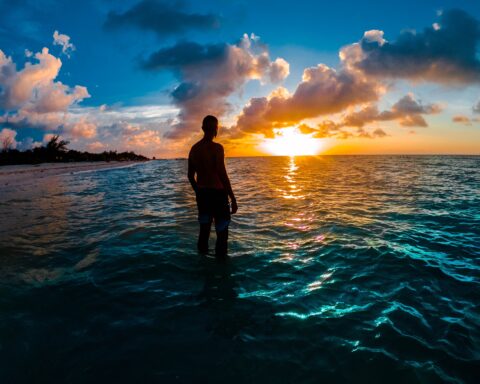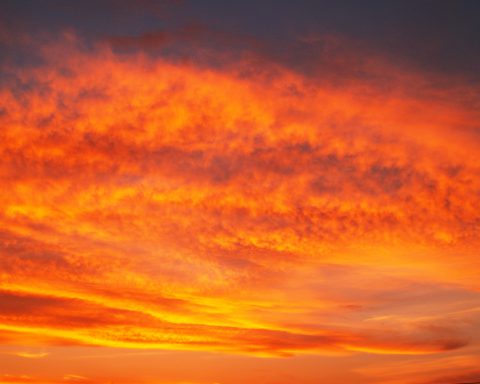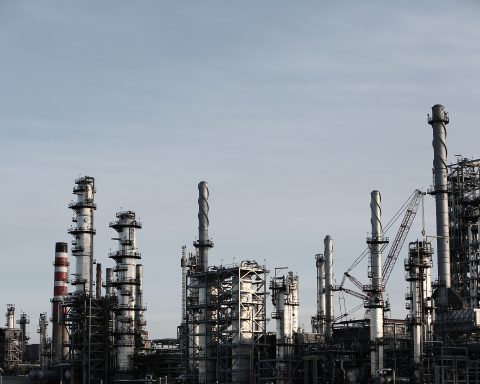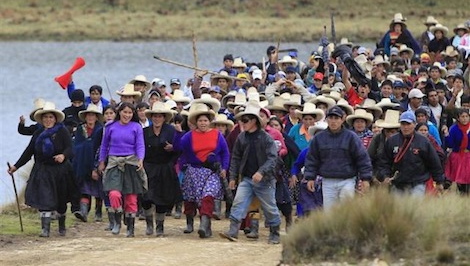References
1. Millennium Ecosystem Assessment, 2005. Ecosystems and Human Well-being: Current State and Trends Volume I. Island Press, Washington, D.C. p 17 http://www.millenniumassessment.org/documents/document.766.aspx.pdf
2. Mora C, Tittensor DP, Adl S, Simpson AGB, Worm B (2011) How Many Species Are There on Earth and in the Ocean? PLoS Biology 9(8): e1001127. doi:10.1371/journal.pbio.1001127
http://www.plosbiology.org/article/info%3Adoi%2F10.1371%2Fjournal.pbio.1001127
3. Marine Life Census. Consortium for Ocean Leadership, Washington, D.C. http://www.coml.org
4. Edwin Schiele. 2012. Ocean Conveyor Belt Impact. National Aeronautics and Space Administration. Ocean Motion and Surface Currents. http://oceanmotion.org/html/impact/conveyor.htm
5. Willis, J. K. (2010), Can in situ floats and satellite altimeters detect long-term changes in Atlantic Ocean overturning?, Geophysical Research Letters 37, L06602, doi:10.1029/2010GL042372. http://www.agu.org/pubs/crossref/2010/2010GL042372.shtml
6. Lozier, M. S., Roussenov, V., Reed, M. S. C. & Williams, R. G. Nature Geoscience. (2010). Opposing decadal changes for the North Atlantic meridional overturning circulation. Nature Geoscience 3, 728–734. doi:10.1038/ngeo947 and http://www.agu.org/pubs/crossref/2010/2010GL042372.shtml
7. Costanza, R. and 12 co-authors. 1997. The value of the world’s ecosystem services and natural capital. Nature 387: 253-260.
8. Noone, K., R. Sumaila and R.J. Diaz (eds). 2012. Valuing the ocean. Stockholm Environment Institute. Stockholm, Sweden. http://www.sei-international.org/publications?pid=2064
9. Millennium Ecosystem Assessment. 2005. What are the main findings of the MA? http://www.millenniumassessment.org/en/About.html
10. Pauly, D. and J. Alder, with 17 lead and contributing authors. 2005. Marine Fisheries Systems (Chapter 18). 23 pp. in: Rashid Hassan, Robert Scholes, Neville Ash, eds. Ecosystems and human well-being: current state and trends: findings of the Condition and Trends Working Group. Island Press, Washington, D.C. http://www.millenniumassessment.org/documents/document.766.aspx.pdf
11. Marine Life Census. About the Census. Consortium for Ocean Leadership, Washington, D.C. http://www.coml.org/about-census
12. Doney, S.C. 2010. The Growing Human Footprint on Coastal and Open-Ocean Biogeochemistry. Science 328(5985): 1512-1516.
13. Food and Agriculture Organization of the United Nations. 2011. Review of the state of world marine fishery resources. FAO Food and Aquaculture Technical Paper No. 569. Rome. 334 pp.
14. Pauly, D. and J. Alder, with 17 lead and contributing authors. 2005. Marine Fisheries Systems (Chapter 18). 23 pp. in: Rashid Hassan, Robert Scholes, Neville Ash, eds. Ecosystems and human well-being: current state and trends: findings of the Condition and Trends Working Group. Island Press, Washington, D.C. http://www.millenniumassessment.org/documents/document.766.aspx.pdf
15. Millennium Ecosystem Assessment. 2005. Ecosystems and Human Well-being: Synthesis. Island Press, Washington, D.C
16. Diaz, R.J. and R. Rosenberg. 2008. Spreading dead zones and consequences for marine ecosystems. Science 321:926-928.
17. May, RM. 2011. Why Worry about How Many Species and Their Loss? PLoS Biol 9(8): e1001130. doi:10.1371/journal.pbio.1001130 http://www.plosbiology.org/article/info%3Adoi%2F10.1371%2Fjournal.pbio.1001130#pbio.1001130-May2
18. National Research Council. 2010. Climate Stabilization Targets: Emissions, Concentrations, andImpacts over Decades to Millennia. National Academies Press. Washington, D.C. x + 232 pp.
19. Embassy of the Republic of the Marshall Islands. Environmental Issues in the Marshall Islands. Washington, D.C. http://www.rmiembassyus.org/environment.htm
20. Kempf, W. 2009. A Sea of Environmental Refugees? Oceania in an Age of Climate Change. Pp. 191-205 In: Elfriede Hermann, Karin Klenke und Michael Dickhardt (eds.). Form, Macht Differenz: Motive und Felder ethnologischen Forschens. Göttingen: Universitätsverlag Göttingen.
21. Agardy, T. and J. Alder, with 20 lead and contributing authors. 2005. Coastal Systems (Chapter 19). Pp. 513-549 in: Rashid Hassan, Robert Scholes, Neville Ash, eds. Ecosystems and human well-being : current state and trends : findings of the Condition and Trends Working Group Island Press, Washington, D.C.
22. Millennium Ecosystem Assessment. 2005. Ecosystems and Human Well-being: Synthesis (p.2). Island Press, Washington, D.C. World Resources Institute
23. Beaudoin, Y. and L. Pendleton (lead editors). 2012. Why value the oceans? A discussion paper. UNEP/GRID and Duke University Nicholas Institute for Environmental Policy Solutions. 33 pp. http://www.grida.no/publications/teeb/ebook.aspx
24. Burke, L., K. Reytar, M. Spalding and A. Perry. 2012. Reefs at Risk Revisited in the Coral Triangle. The Worldwide Resources Institute.
http://www.wri.org/press/2012/07/release-85-percent-reefs-coral-triangle-are-threatened-new-report-finds
25. Cesar, H. and C. K. Chong. Economic valuation and socioeconomics of coral reefs: methodological issues and three case studies. WorldFish Center. Contribution No. 1721. 27 pp. http://www.worldfishcenter.org/Pubs/coral_reef/pdf/section2-1.pdf
26. Noone, K., R. Sumaila and R.J. Diaz (eds). 2012. Valuing the ocean. Stockholm Environment Institute. Stockholm, Sweden. http://www.sei-international.org/publications?pid=2064
27. Hardin, G. The Tragedy of the Commons. Science.
28. Davis, E. 2008. Knowing our place on Earth: Learning environmental responsibility from the Old Testament. Pp. I-58-I-64 in: M. G. Mudlin and M. Baer, eds. The Green Bible. HarperOne, New York.
29. Shahid Athar. Global warming and health—an Islamic concern. Pp. 63-70 in: Williams, Christine (ed.) 2011. The Eleventh Commandment: Caring for Creation – Words of Wisdom From the World’s Great Faith Traditions. Earth Faith Publications.
30. Alliance of Conservation and Religions. http://www.arcworld.org/
31. National Science Foundation. 2012. What is science telling us about climate change? http://www.nsf.gov/news/special_reports/degree/carbon.jsp
32. Lenton, T. M. and 6 co-authors. 2008. Tipping elements in the Earth’s climate system. Proc. National Academy of Sciences. 105(6): 1786-1793.http://www.pnas.org/content/105/6/1786.full.pdf+htm
33. Williams, Christine (ed.) 2011. The Eleventh Commandment: Caring for Creation – Words of Wisdom From the World’s Great Faith Traditions. Earth Faith Publications.
34. McKibben, B. 2011. Foreword. Pp. vii-viii in: Williams, Christine (ed.) 2011. The Eleventh Commandment: Caring for Creation – Words of Wisdom From the World’s Great Faith Traditions. Earth Faith Publications.
35. North American Association for Environmental Education. Guidelines for Excellence. http://eelinked.naaee.net/n/guidelines
36. National Marine Educators Association. 2006. Ocean Literacy—The Essential Principles of Ocean Sciences. 11 pp. Ocean Springs, Mississippi. http://www.coexploration.org/oceanliteracy/documents/OceanLitChart.pdf
37. Monterey Bay Aquarium. Seafood Watch. http://www.montereybayaquarium.org/cr/seafoodwatch.aspx
38. Season of Creation. Ocean Sunday. Melbourne, Australia. http://seasonofcreation.com/worship-resources/liturgies/series-c-the-wisdom-series/liturgies-ocean%C2%A0sunday/
39. Department of the Environment. Chesapeake Bay Restoration. State of Maryland. http://www.mde.maryland.gov/programs/water/pages/water/bayrestoration.aspx
40. Chesapeake Bay Environmental Center. Graysonville, Maryland. http://www.bayrestoration.org/
41. Chesapeake Bay Foundation. Annapolis, Maryland. http://www.cbf.org/page.aspx?pid=1000
42. Save the Bay: Narragansett Bay. Providence, Rhode Island. http://www.savebay.org/
43. Houghton, J. Why care for the environment? Faraday Paper No. 5.Faraday Institute for Science and Religion, St. Edmund’s College, Cambridge. 4 pp. http://www.st-edmunds.cam.ac.uk/faraday/resources/Faraday%20Papers/Faraday%20Paper%205%20Houghton_EN.pdf






Unbound Social